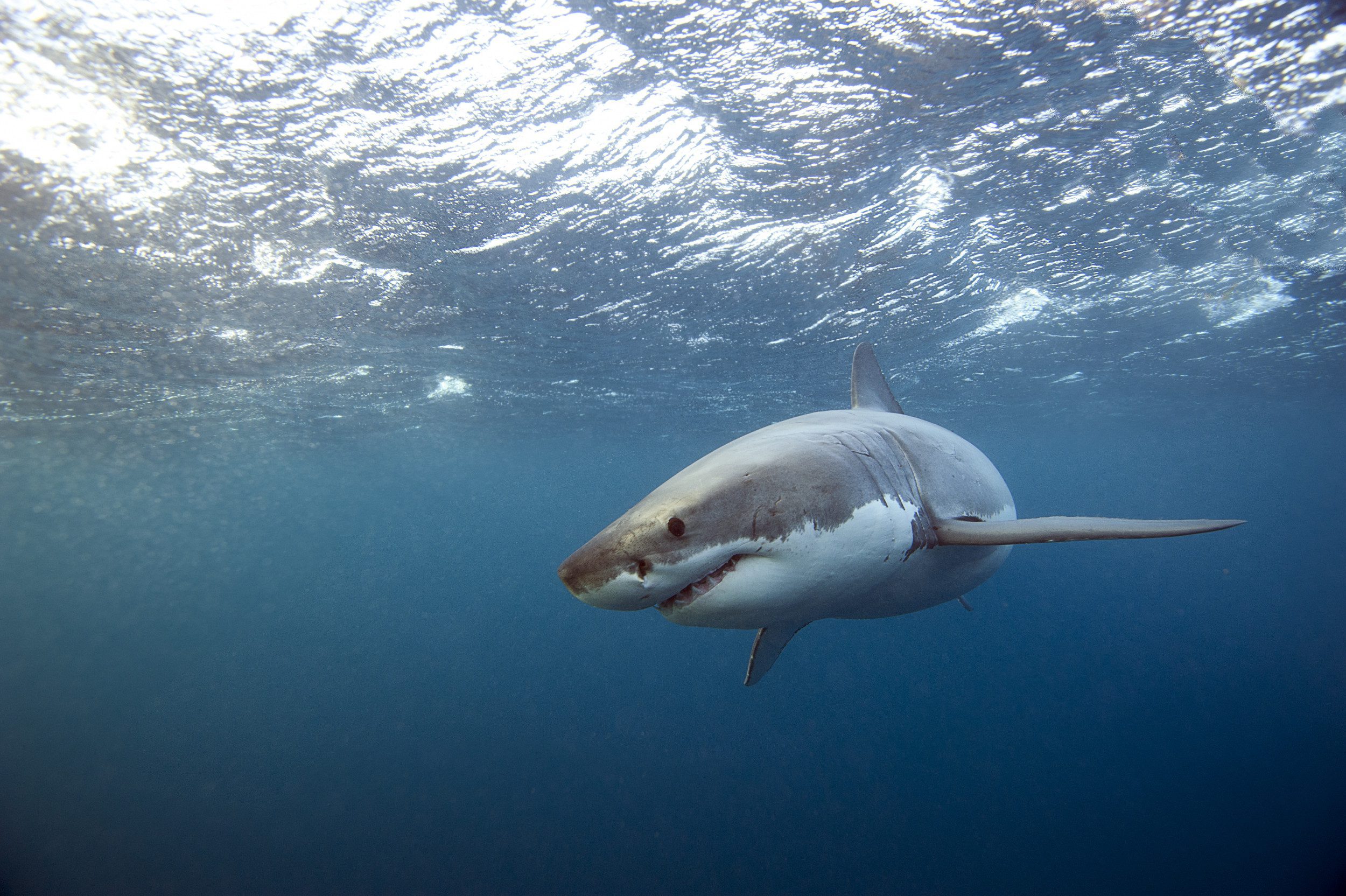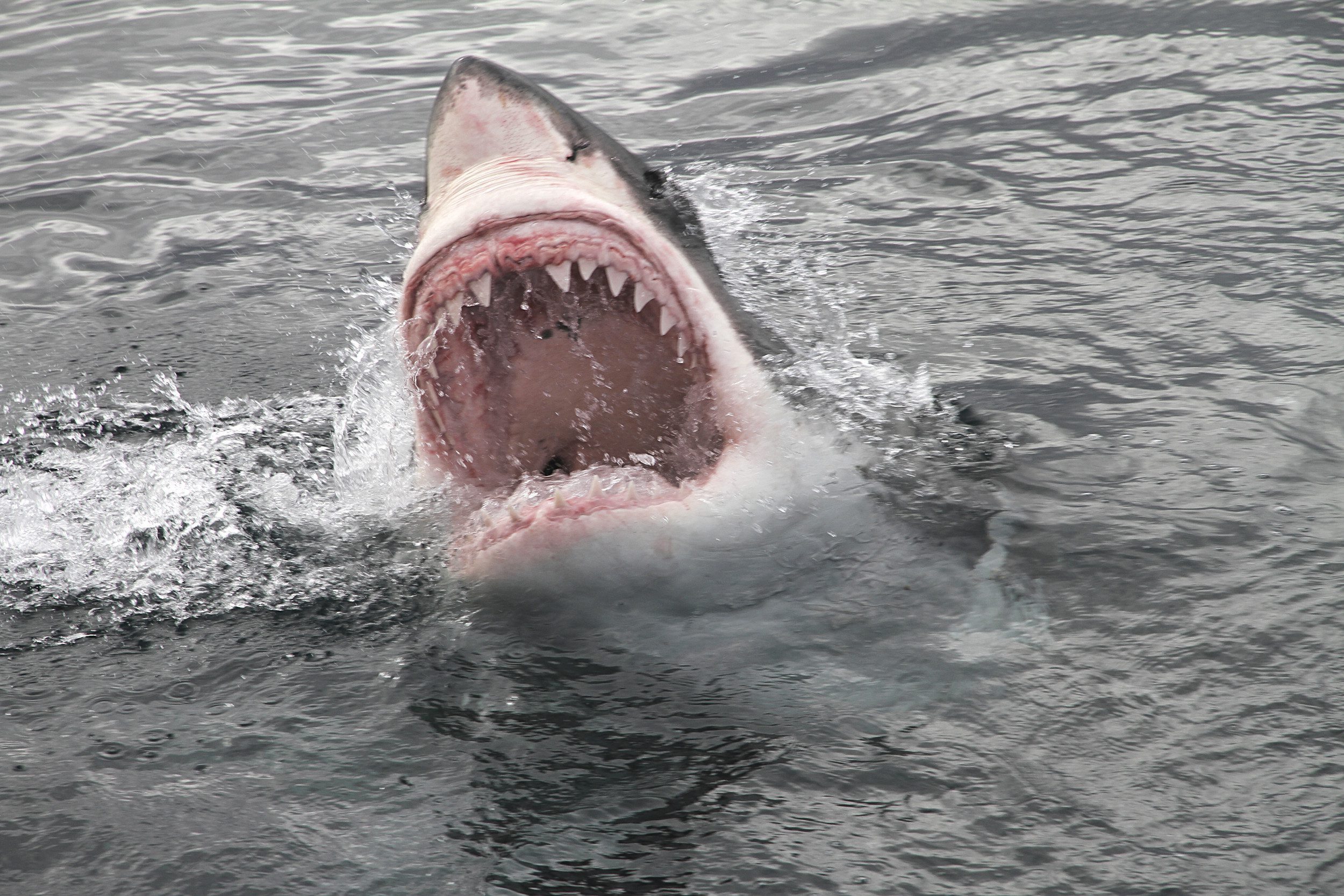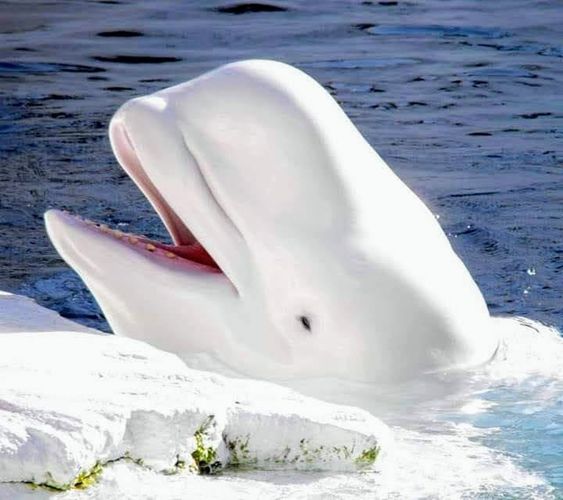A massive great white shark measuring more than 13 feet and weighing 1,500 pounds has been tracked off the coast of South Carolina.
The shark, known as Breton, was tracked by the ocean research organization Ocearch, and was lurking approximately 60 miles off the coast of Myrtle Beach on August 2.
Ocearch tags great white sharks to learn more about the species and their behavior: tagged sharks “ping” the tracker as their dorsal fins approach the water surface. Prior to this “ping,” Breton had spent June and July off the coast of Florida.
Breton is part of the North Atlantic great white shark population that swims along the east coast of the US and Canada. Sharks often migrate along the route, spending summers in the north and winters in the south.

A file photo shows a great white shark. Breton, tracked by Ocearch, is in South Carolina. ANDYTHIRLWELL/GETTY
However, Breton has stayed in the south much longer than usual this year and, according to Ocearch, this is the longest one of their marked big targets has spent in the south.
Ocearch said on Facebook that Breton is “kind of like a housewife.”

“While the rest of our actively pinging white sharks are found in the northeastern U.S. or Atlantic Canada, Breton remains in the warm waters of the southeastern U.S. This is the last time “We’ve seen one of our white sharks stay this far south in the western north.” Atlantic,” Oceanarch said on Facebook.
“We typically notice our white sharks begin their northward migration from mid-May to June. How Breton is coping with warm water temperatures or whether it has finally begun its migratory journey north toward Atlantic Canada are some of the questions our science team is currently asking. We will be attentive to Breton’s movements in the coming weeks.”
Most of Ocearch’s tagged white sharks are currently found off the coast of Canada.
Breton’s ping in South Carolina may indicate that it is finally beginning its journey north for the winter.
South Carolina has recorded 107 unprovoked shark attacks since 1837, according to the Florida Museum’s shark attack archive. It ranks fourth in the state for the most shark attacks recorded.
However, shark attacks remain serious, and while Breton lurks near the shore, his presence poses little danger to humans.
The huge male shark was first tagged by the research group in September 2020. When Ocearch tags a shark, researchers use a hydraulic platform to lift it out of the water, where they then attach a tracker to their bodies.
Before spending June and July in Florida, Breton was tracked incredibly close to the North Carolina coast. Scientists believe this is where great white sharks go to mate and raise their young.





